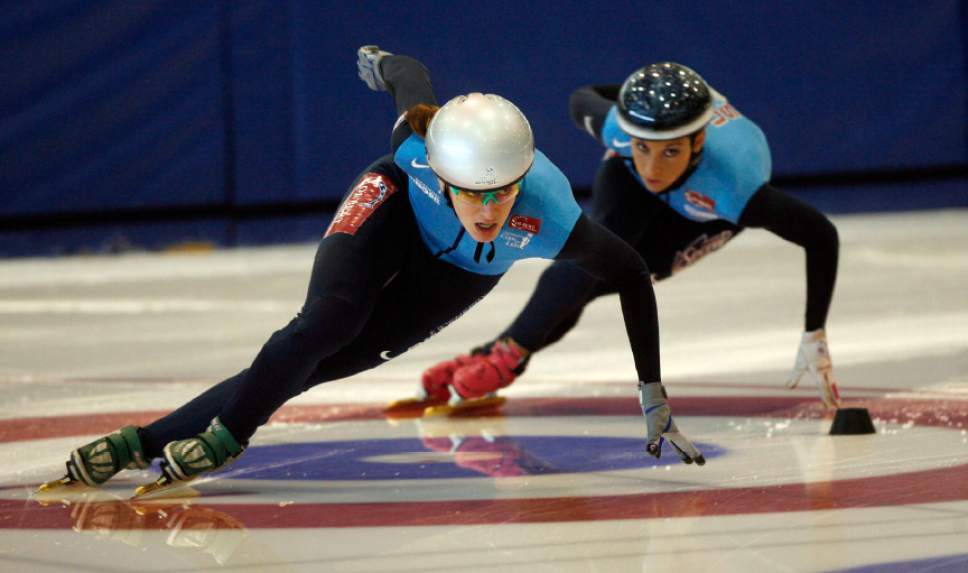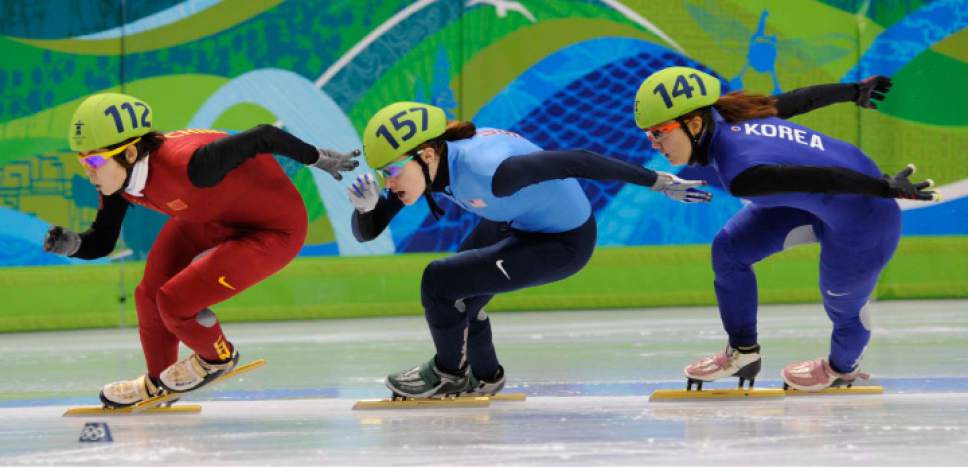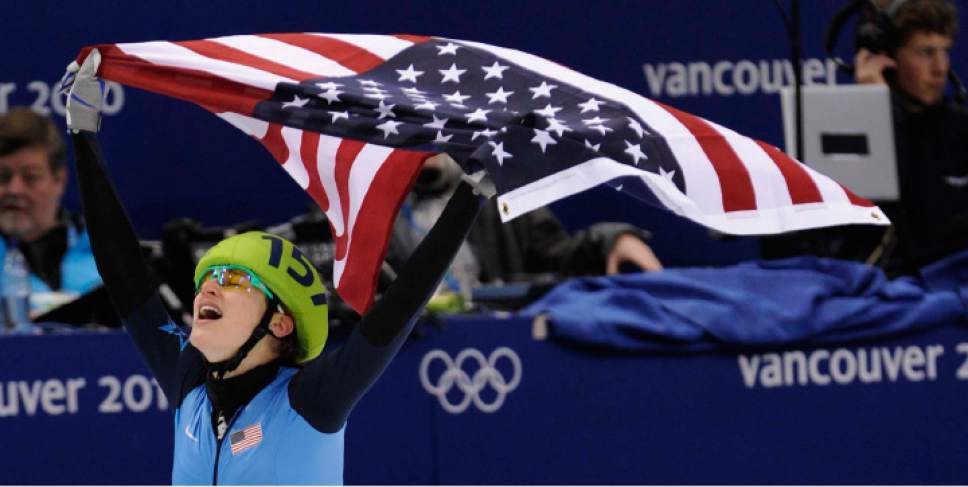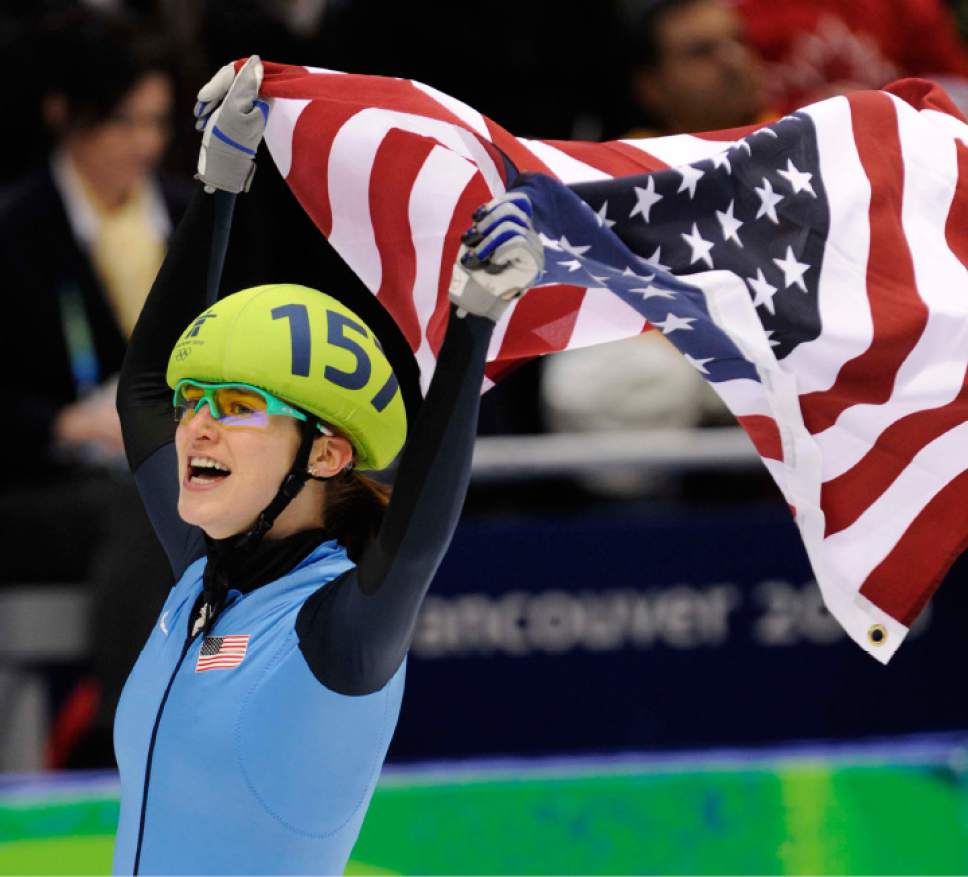This is an archived article that was published on sltrib.com in 2016, and information in the article may be outdated. It is provided only for personal research purposes and may not be reprinted.
Katherine Reutter pressed her blades down against the ice in Calgary last weekend, taking each left turn with a smile on her face. Ask Reutter what made speedskating her life's passion, and the two-time Olympic medalist will summarize the only way she can: She thoroughly enjoys turning left.
It might sound silly, her explanation. But that's it, and that's how Reutter, now 28, likes to think about the sport that has given — and taken — much during her competitive career. So when she sped around the ice in 1,500-meter final of the ISU short-track World Cup season debut in Alberta, Canada, Reutter's fitness failed her.
"I knew what to do, I knew how to do it, I asked my legs to do it with me," she explained, "and they said, 'No.'"
It wasn't the answer she wanted to hear from her body in her first short-track World Cup event in five years, but the fifth-place finish kept the smile there. Strategically, she raced the way she wanted to, but as the laps stacked up, there was no secret: Reutter knew she was the gassed contender.
She's maintaining perspective, because after several hip surgeries, coupled with chronic pain in her lower back, Reutter had no choice but to hang up her skates in 2013, just three years after winning two Olympic medals at the 2010 Games in Vancouver.
At 24, her body was breaking down and the pain she dealt with on a day-to-day basis was often debilitating. During one visit to a physician, she was informed that if one day she chose to have children, her back pain would prevent her from just being able to lift a child off the ground.
Reutter started coaching a short-track program in Milwaukee, Wisc., where she still calls home. But while back in Utah in 2014 for the Apolo Ohno Invitational speedskating event, Reutter was sitting in a board meeting for U.S. Speedskating when news broke that a female Dutch skater picked up an injury. The Dutch needed a skater to compete in the relay at the event, so when troubleshooting began, Reutter raised her hand.
The owner of two Olympic medals representing the U.S. sported an orange Dutch skinsuit that night at the Vivint SmartHome Arena. That was where one of the first seeds were planted in her mind. A comeback no longer seemed totally far-fetched. Through rehab, chiropractic work and a stringent nutrition plan, she was ridding herself of the lingering pain.
"I feel like if she was ready to be done, she wouldn't have come back," said longtime teammate Jessica Kooreman. "She's always had this motivation, will and drive to want to be back out on the ice. I don't think that was necessarily was her choice to be done when she did."
A year after unexpectedly suiting up, Reutter found herself back in Utah in Nov. 2015 at another board meeting prior to a fundraiser event. Members of the board joked, as they always did, asking when she was going to make her return. It became a reality in May, when she finally quit her coaching job and got back to zipping around the track.
Reutter earned a spot on the U.S. short-track World Cup team the first week of October follwing team trials. Her fiancee routinely asks for odds of her returning to her Olympic-medal form of 2010. She shrugs her shoulders. By the end of this World Cup season, she estimates she'd like to arrive at 95 percent.
But it's not about hitting 100 percent. The 2018 Olympics in PyeongChang, South Korea, aren't considered make-or-break either. Reutter wants to prove to herself, after the years off and those days of constant pain, that she's still got it.
"It's not normal for a girl my age to come back and do athletics," she said. "All my friends right now are planning their weddings and having babies. You can find something that empowers you. It doesn't have to be the status quo."
Twitter: @chriskamrani —
ISU short-track speedskating World Cup
Friday-Sunday
At the Utah Olympic Oval, Kearns
Friday • Preliminary races in 500-, 1,000- and 1,500-meter events plus 3,000- and 5,000-meter team relay, 10 a.m. to 5 p.m.
Saturday • 1,000- and 1,500-meter semifinals and finals, 6 to 9:30 p.m.
Sunday • 500- and 1,500 semifinals and finals, 1:30 to 5:30 p.m.









